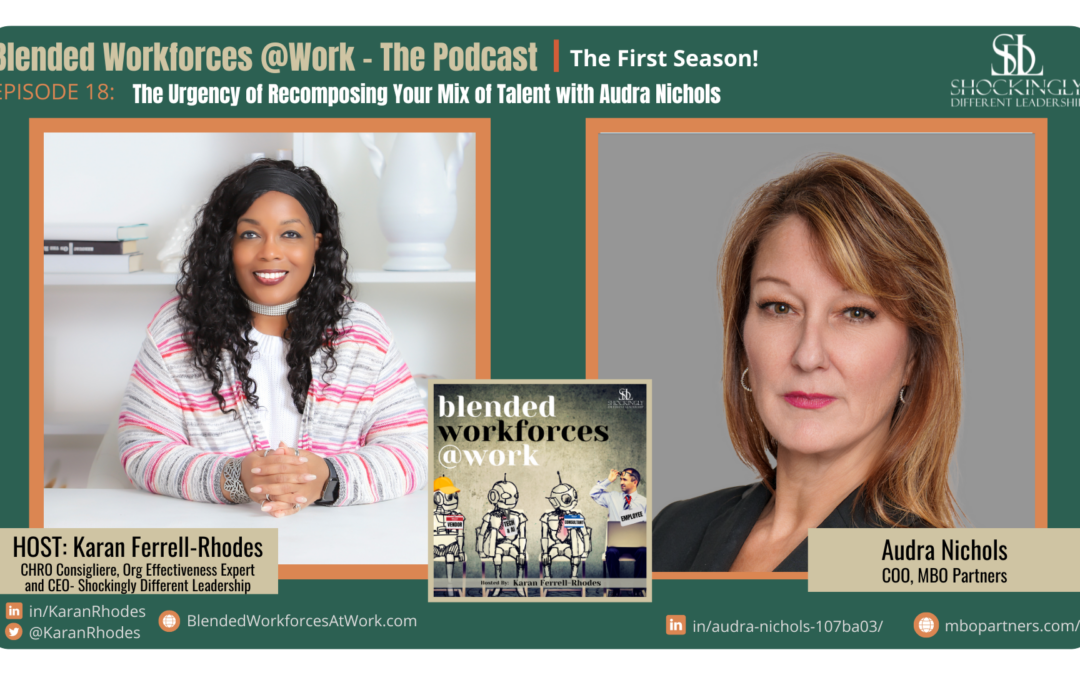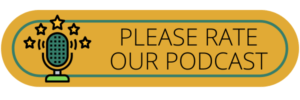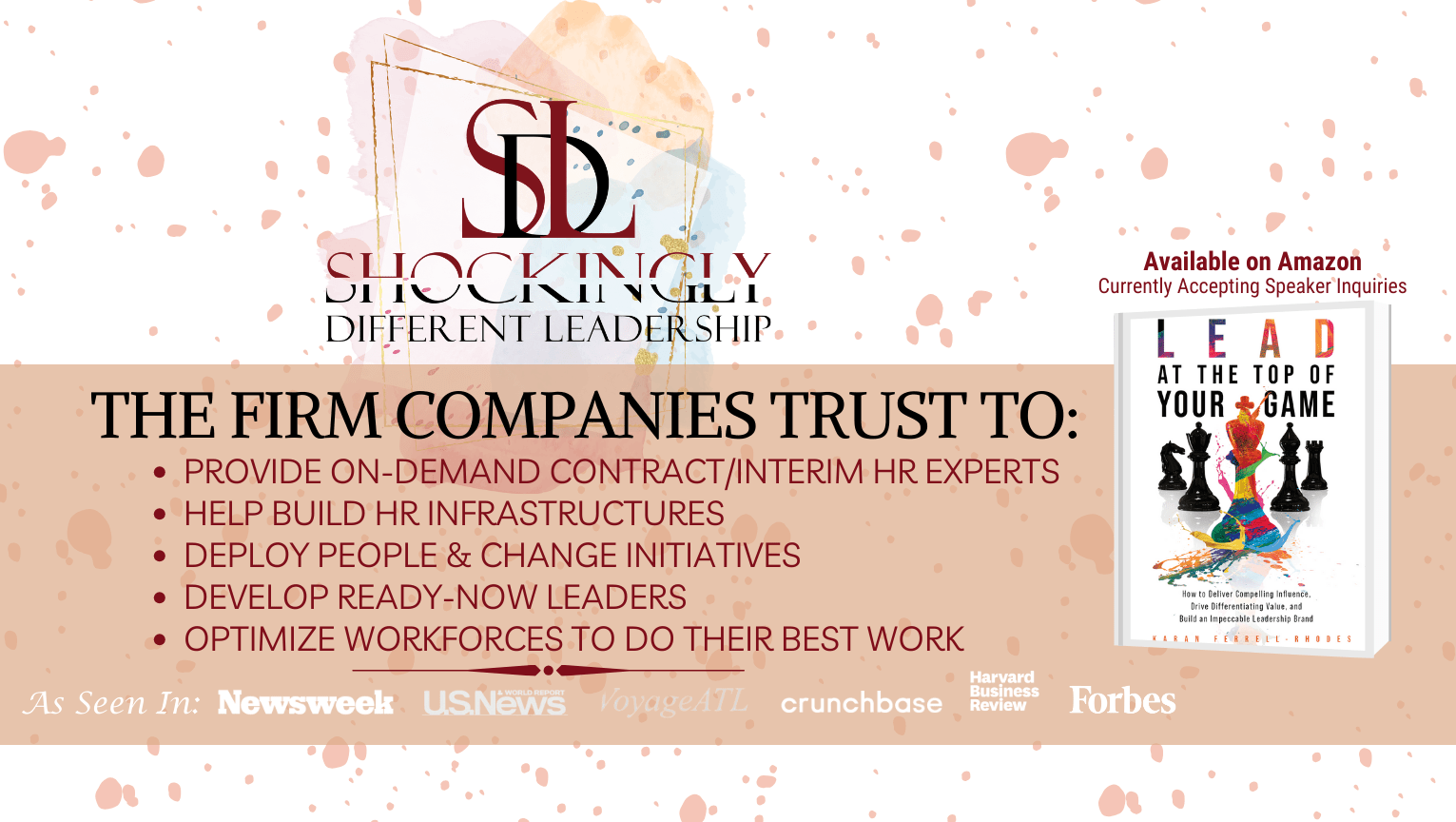IN THIS EPISODE, KARAN FERRELL-RHODES INTERVIEWS AUDRA NICHOLS.
In a world where blended workforces redefine success, organizations must integrate independent contractors and full-time employees, balancing innovation with agility!
Audra Nichols, COO of MBO Partners since January 2022, excels in this realm, leading talent and client services with over 25 years of experience in transformational change. Her expertise, honed through roles at UnitedLex and PwC, focuses on leveraging technology and evolving skills to meet dynamic needs, making her an essential voice in navigating this hybrid model.
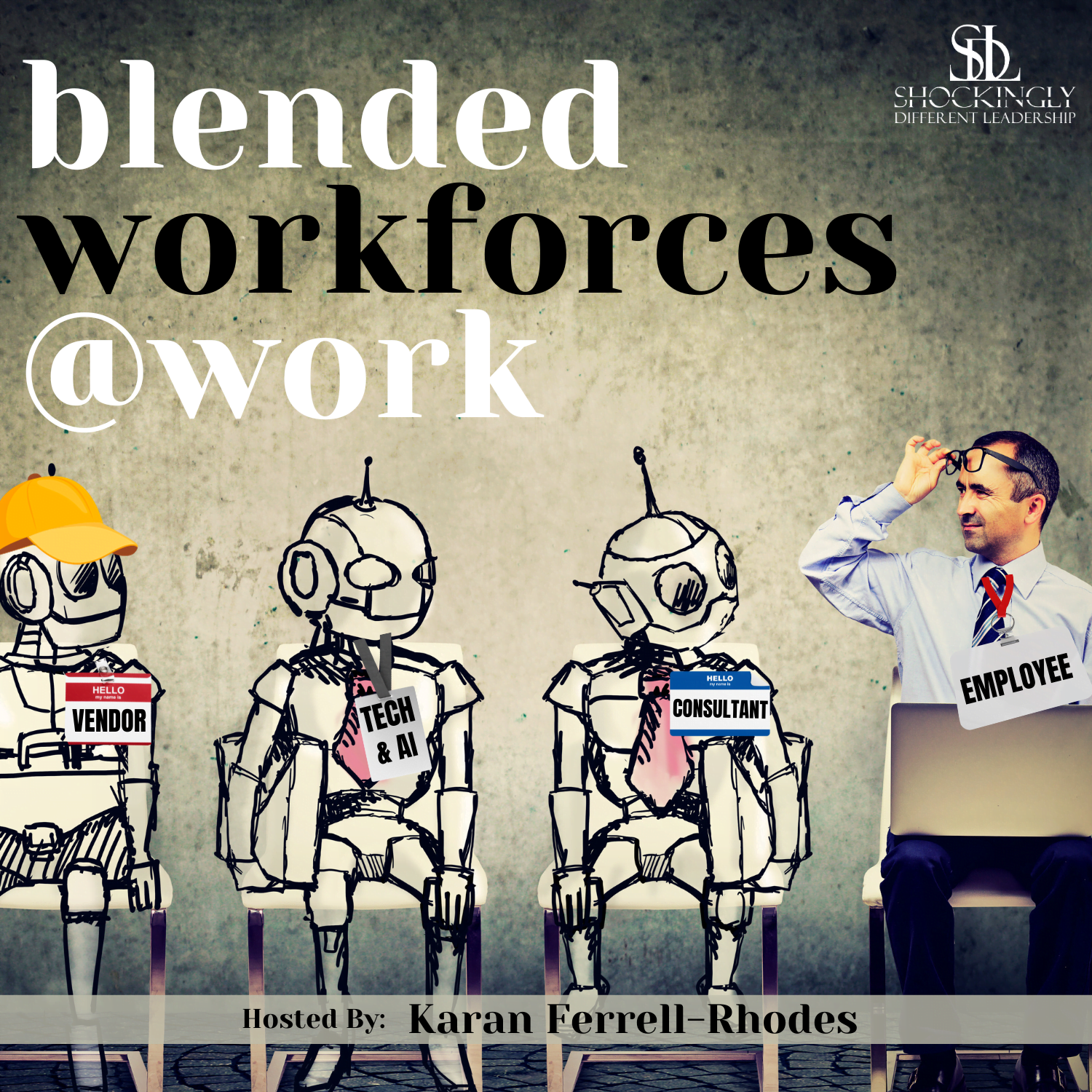
Posted by
SDL Media Team
Rather view our video podcast?

WHAT TO LISTEN FOR:
- How can companies maximize innovation and agility with a blended workforce?
- What are the fundamental cultural shifts and leadership challenges in managing a rising independent workforce?
- How can organizations ensure compliance and enhance productivity while leveraging technology in a blended workforce?
- What are the essential insights for thriving professionally and balancing independence with integration?
- How does fostering exceptional talent and client experiences drive growth and satisfaction?
- What leadership strategies are needed to adapt and embrace technology in a diverse virtual workforce?
“We truly do have a human scarcity issue.”
FEATURED TIMESTAMPS:
[03:02] Audra’s Life Beyond the Office
[06:28] The Strategic Advantage of a Blended Workforce at MBO Partners
[10:30] The Rise of the Independent Workforce
[16:26] Enhancing Productivity and Knowledge Sharing in a Blended Workforce
[19:46] Insights on Thriving as a Professional
[23:37] Signature Segment: Audra’s entry into the LATTOYG Playbook: Fostering Exceptional Talent and Client Experiences
[28:06] Future of a Diverse and Virtual Workforce
[32:33] Signature Segment: Audra’s LATTOYG Tactic of Choice: Leading with a Drive for Results
[34:34] Discover MBO Partners and Connect with Audra!

ABOUT AUDRA NICHOLS:
Audra Nichols, who was appointed Chief Operating Officer at MBO Partners in January 2022, oversees all talent and client-facing services for the organization’s portfolio of independent contractors and enterprise clients. Additionally, she manages operational excellence functions. Previously, Nichols was Executive Vice President at UnitedLex, where she led the legal services transformation business, focusing on growth, scale, and profitability through operational excellence and client impact optimization.
With a background at PwC and Arthur Andersen LLP, she brings over 25 years of professional services experience, specializing in large-scale transformational change, team building, and innovative operational practices. Audra is recognized for her ability to bridge strategy and execution effectively, consistently driving measurable business growth and differentiation globally. She actively contributes to Consulting Magazine’s board of directors and CHIEF, a women’s executive network. She has held key roles in The Conference Board’s Globalization Leadership Council and Advancing Women in Leadership Council. Audra is a seasoned public speaker with a Bachelor of Science in Corporate & Organizational Communications from Ithaca College.
LINKS FOR AUDRA:
- Website: mbopartners.com/
- LinkedIn: linkedin.com/in/audra-nichols
ADDITIONAL RESOURCES FOR YOU:


Episode Sponsor
SDL is the go-to firm companies trust when needing to:
- supplement their in-house HR teams with contract or interim HR experts
- implement leadership development programs that demonstrate an immediate ROI and impact on the business

Episode 18 | The Urgency of Recomposing Your Mix of Talent with Audra Nichols
Audra Nichols 00:00
When you mix independent consultants or contractors into your business have full time equivalents, it’s going to do a number of things. It’s going to give you… first of all, really very basically, if you have a defined mix, if you know, I want so many hours of my billable hours, let’s say, to be through independent contractors, you’re creating an environment where, from a pure operations leadership perspective, you’re managing your operating capital.
Karan Rhodes 00:03
Blended workforces are one of the hottest talent strategies today, where employers are using a mix of traditional employees with external resources like independent contractors, coaches, consultants, vendors, and technology solutions, all in order to enhance competitiveness, ensure cost flexibility, and expedite business goals. But how are the successful companies infusing blended workforces into their business strategy? And what are the critical success factors and pitfalls to avoid during implementation? And on the flip side, what does it really take for suppliers to improve their chances of finding and landing contract opportunities? The devil is in the details, my friends! I’m your host, Karan Ferrell Rhodes, and it’s time to get smarter about Blended Workforces at Work! Hello, my superstars out there this is Karen and welcome to another episode of the blended workforces that were podcast. We are so thrilled that you’re joining another episode with us and hopefully you will continue to do so. So please remember to like and subscribe and make sure you always get notified when we have a new fantastic episode just like the episode that we have today for you. We are so pleased to have on today’s show. Audra Nichols, who is the Chief Operating Officer of MBO Partners, and MBO Partners, if you don’t know it’s a direct sourcing platform that enables enterprises and independents to work efficiently together. And you know, with me being so passionate about the power of blended workforces, and the whole workforce industry, if you will, I’ve been following MBO partners for quite some time now there have been other leaders such as them, and seeing what they’re doing to help make the world of work easier for both companies and consultants, like myself, you know, work together. And so when I saw an opportunity to feature one of their executives, of course, I jumped at the chance. So welcome to the day show, Audra. We’re so happy to have you.
Audra Nichols 02:09
Thanks, Karan. I’m delighted to be here.
Karan Rhodes 02:11
Awesome! Awesome. So I know, we could talk about this topic for hours, literally. But since we can only get a little bit of your time, we’re gonna jump right in very soon. But before we do that, we’d love to learn a little bit more about you. So just for as much as you feel comfortable. Would you give us a sneak peek into maybe your life outside of work?
Audra Nichols 02:33
Sure, sure. I will. I am a morning person. I’m an early riser
Karan Rhodes 02:37
You’re killing me.
Audra Nichols 02:39
I get up at 430 in the morning, everyone thinks I’m crazy. And you know what, no one actually enjoys that. But it’s a matter of discipline. So I get up and I go to the gym, and I have a personal trainer. And it’s kind of like my social life because we spend so much time here parents these days. Yeah. Right. Like, I love to go to the gym, just have the noise and the energy and the activity because I love the energy. Do I love to work out? No, not really. But I know it’s required. So I get up and do that. I also have two boys, you and I’ve talked a bit about this one is an artist. One is an engineer, I’m going to tell you something they could not be more opposite. You don’t know how they came from the same parents. Isn’t is it not crazy, but they are the lights of my life. Oh, yeah. And I can tell you for all all of you who have smaller children and are raising them, like every stage you think is perfect. It is fantastic. Having adult children going to Italy this summer, we love to travel, we try to do one trip a year, it gets harder as they get their own lives. But adult children are, it’s a ton of fun.
Karan Rhodes 03:45
It is I can just totally highfive you and concur 50 times over. Because we have kids of similar ages. And every stage was wonderful. But this stage is very unique because we’re both friends, as well as they still respect the parent/child relationship, but conversations and it’s such a tremendous level. I mean, I can’t concur more this the joy and you know what, we never get rid of them. They always come back to talk and hang and what have you
Audra Nichols 04:18
Which means you did something right. Karen’s gonna hang out with you. Right? So that means to me, that’s the greatest blessing it means we’ve done something right
Karan Rhodes 04:27
It is. I’m gonna accept that and take that because because we do genuinely enjoy our time together. Yeah, well, thank you so much for sharing on Joe. So let’s get into talking about blended workforces. And, uh, you and I both have an extreme passion around this. I mean, you’re the Chief Operating Officer of one of the largest firms that specializes in it and I came from, from the corporate side on the enterprise level side of the house as well. Most of the companies I worked for were fortune 100 company so and I was on the bye aside at the time now, you know, now that I’ve started a firm, we were on the supplier side. But there is immense power and blended workforces. But it has to be done right found, you have to have the right types of strategies in place to really think through your business for both sides of the house for both your enterprise level companies, as well as for the suppliers. They’ve got to be qualified and ready for integration into those types of opportunities. So let’s just get started getting your thoughts around. First of all, let’s start about what in your opinion, is the power blend at work versus number one? And then maybe what are some of the things one or two things that are things that both companies and suppliers need to watch out for that might be either roadblocks or quicksand? Around workforces?
Audra Nichols 05:59
Yeah, so let me start with the power of the blended workforce. And I’ll make it a little bit more specific right at MBO partners as most may or may not know, we specialize in the independent professional, right? Somebody who’s chosen to let’s just say, for simplicity, be a 1099. They’ve chosen not to be an employee of a large organization, where you and I both come from. And so that’s really our focus. But that’s, that is a component of it. I spent my career in a multibillion dollar professional services firm, and I was a power user of independent contractors. Then I was a client of MBO partners, and now I am at MBO partners, because my passion has taken me there. Right, right. So if I think about it, really from a C suite perspective, or let’s just call it like an operations leader of any organization, when you mix independent consultants or contractors into your business have full time equivalents, it’s going to do a number of things, it’s going to give you first of all, and really very basically, if you have a defined mix, if you know, I want so many hours of my billable hours, let’s say to be through an independent contractors, you’re creating an environment where from a pure operations leader ship perspective, you’re managing your operating capital, so your carrying costs right are not as high because you’ve intentionally said, I know that I can bring in experts in these particular areas, it’s perfect for innovation, you may have an innovation project, it’s gonna run, you know, for months, if we even think about AI today, every organization doesn’t have the greatest AI professionals on staff, and you probably don’t need that. So we’re upskilling our employees at the same time, we can bring in folks to help us innovate, they can do a project, and then they can move back out versus you really don’t have that flexibility to hire a whole innovation team for a particular project. Right. So one, I think it helps you breed innovation to you can do that in a very agile way. If you just think about where many large organizations were, let’s say, you know, a year or two after COVID, even 2023, Karan, and look at the number of organizations had to lay people off.
Karan Rhodes 08:15
Yes!
Audra Nichols 08:15
Those who had a true intentional mix of how they brought independent contractors to the table had far less risk from that employment perspective in terms of laying people off. So innovation, agility, carrying costs, you can actually affect your margin your profitability and based on how you measure your profitability for how you bring in your independent contractors, based on how you’re serving your clients.
Karan Rhodes 08:45
Absolutely. So yes, and I was speaking I hold executive HR huddles with CHR is all the time. And we talk about things that are top of mind for them. And one of the CHR is of a fairly large organization said she had been trying to help her executives understand how they needed to tweak their workforce strategy to include more independence, to provide more agility for the company, you know, cost wise skills wise, you name it, but it was a hard sell to her executives because they couldn’t get their minds around it yet. They couldn’t understand how to truly infuse it without breaking other things within the organization like employee morale or risk of losing some F TVs or wanting people to they want to move over to the independent side if it was offered. Have you found that as well as your organization talks with enterprise levels? Or if not, what are some of the main push backs that firms have when you’re really talking about including or a blended deeper blended work for strategy into their operations?
Audra Nichols 10:01
I think it varies, I think, yes, I have found that, although I will say today, it’s less consistent than it was several years ago. I mean, let’s just think about some of the facts right. Today, our we do a state of independence report every year, it’s one of our flagship pieces. And you may know this, many of your listeners may not. But in 2023, there were 72 point 1 million independents in the United States, and that is up 89%, from 2020. And it’s not like, this is like a COVID thing. It’s gone up and up and up since COVID, 89% increase. So the reality is that if you’re the C suite, you’re really paying attention, you’re gonna have to recognize that you’re gonna hit a wall, if you’re thinking just traditionally 72 point 1 million, it’s a large portion of the workforce, it is a couple of other facts. And this is what I encourage any, even many of my colleagues or friends and other organizations to talk about is start with the facts. The other thing is, is that we truly do have a human scarcity issue. If you really think about it, we do so a couple of things. Today, the number of job openings outweighs employment to the one. Yeah. Okay. So that’s a big deal. Another thing to think about, if you just think about the minds of the workers, I’ll call it workers in 1980, Karen, two thirds of organizations had a defined benefits plan a pension plan. Today, that number is less than 10%, I believe. Most studies will say it’s 3%. So what does that tell us? That tells us that if you’re were a worker, corporate America broke its promise to us. Right? So your mindset is very, very different. The other thing is, is that I think it was this was recently published from from a federal perspective, the average tenure today of an employee is 4.1 years average. We’re talking from boomers all the way down. If you’re less than 35 years old, it’s 2.7 years, and Gen Z, it’s 1.1 years. So take some of those facts, right, and put them together. And if you’re an organization, you must think differently. The facts are what helped us have that conversation. And let’s think about the cultural component, because that’s the hardest part. Yeah. We I recently did work on a study with, with Forrester, in the majority of organizations recognize and say, These are the C suite that 35% of their work hours will come from Independence in the next three years. Yeah. And there I’ve got three data points for that our state of independence says 30. The SAA report says 35, in this Forrester report says 33 or something like that it’s all within the same range. The issue is, well, they recognize that, how do I do that? I think is what speaking to what you came out of? What’s the hard part? That is how do I do that now, you’re not going to very few organizations are going to rip and replace. So you have to have an intentional strategy to do it as a part of normal attrition, your evolution, it’s a huge transformation. You don’t just rip the band aid off. Now you have an intentional approach to take that through. And I really believe one of the key factors that changes that and perhaps this is what you’re hearing, kind of in your in your chats, is leadership and traditional leaders don’t necessarily consistently have the skills they need today, to manage a blended workforce. That’s true expect more flexibility, good digital nomads. 17 point 3 million people in the US are digital nomads, meaning they they want to work wherever they can. These are not like dudes in dreadlocks in Havana, right? Ever changes 39 Believe it or not, which actually surprised me. But that’s 11% of the US how you work with and get the best of the best from those folks, whether they’re employees or independent contractors doesn’t matter. It’s a choice that they’ve made, but they still want to work. It’s not that they don’t want to work. But how you lead in an environment with this type of blended workforce is very, very different. And I often believe that some of that concern, or some of that hesitancy is not necessarily not the recognition that I need this blended workforce, and I’m going to bring independent contractors in, but how do I as a leader manage that? Yeah. And I don’t believe I and my leadership team have those skills. And that’s what organizations like mine can help with. But that’s really what I think the crux of it is,
Karan Rhodes 14:35
I think it is to you know, that’s pulling the, you know, layer the onion back a little bit I do believe that’s where they’re very nervous about because it shows vulnerability and what maybe skills that they’re lacking our gaps that they’re needing to be filled, and you’re right, partnering with an organization such as yours would really help them understand what’s possible and upskill their teams your leadership team seems as well. So I think that is extremely important. And, you know, the way we look at blended workforces, or our podcasts, and in our company and our consulting firm is we also include tech in there as well. Because your full team FTAs, you have your independence, but everybody’s using some form a technology to, to thread workstreams together, and they’re all using them. And then so these managers or leaders are having to lead all of that together in the most efficient way possible, to get work done. And then there are, you know, you pull down the layers of the onion a little bit further, who do you give access to what and for your independence? You know, how do you interact with them without crossing the IRS guidelines. And you know, all of those day to day concerns that come up, sometimes overwhelm leaders, if they don’t have that kind of coaching and guidance. Have you seen that as well?
Audra Nichols 15:56
It’s a different way of working and to your point, you know, shipping those independence compliant is really, really important.
Karan Rhodes 16:02
Yes.
Audra Nichols 16:03
or any organization, particularly the large ones. And that’s something I would never recommend an organization do on their own. You need organizations like mine, MBO, we do that for you. That’s something that you want to have the experts. And to your component of tech, I actually just had this conversation, I think it was just yesterday, right. And I recently went to a conference on AI and the human component of AI and the use of tech. But when you really think about it, that there’s no time better than today, when you don’t have people where you use tech, and you can take somebody who is either new to the organization or independent, and they can be productive and relevant in your environment. Because of the access to knowledge that historically was up here on people’s minds. Yeah, it was all up here. But today, I can bring in an independent a new employee, like here at my organization, we use AI, which has pulled generative AI has pulled all of our knowledge bases together, where I can just ask, we call her Cleal a question. And the historic knowledge of this entire organization is at my fingertips, I don’t need to find out who to go to or what SharePoint site, it’s alright, I should go talk to sue, who’s been here for 39 and a half years, but only sue knows, like, we have the ability to actually bring people together as a team with relevance and skills and content faster and better than we ever have today.
Karan Rhodes 17:36
Absolutely, absolutely. And it’s just amazing how business and technology has helped the world of work transform, just in the last I won’t even go like five years, or you know, three to five years, it’s just been absolutely insane. And I I am a glass half full kind of gal. So I think it brings even more opportunities to all stakeholders, no matter if you’re an independent, you know, company itself, or even a tech supplier vendor, just the way the ability to collaborate in new and interesting ways. I mean, the world Forrester, are you here with that, uh, don’t want to miss out. And we’ve been talking a little bit on the advantages for the corporate side of the house. But I’d love for you to talk a little bit about the world of independence, meaning, yes, a lot of people are working more independently now versus being a full time employee. But it’s not for everybody. Right? There’s some people that they thrive in that entrepreneurial, independent type of environment. And then there are others that they struggle just because you were great. A great worker bee and a certain skill at a company does not mean you’re ready to, you know, go and work for the Amazons of the world. Right. So, can you share with us a little bit of advice or thoughts about those who are independents, both new and seasoned, how they should approach really being prepared to work and integrate themselves if they get an opportunity on a contract with companies such as the ones you I’ll work with?
Audra Nichols 19:17
Yeah, for sure. I can talk about it. Also, many of my dear friends have been independents. And actually, were on key projects of mine. I’m gonna go back six and seven years who are still some of my dearest friends
Karan Rhodes 19:30
Me too.
Audra Nichols 19:31
And so I know their world. And obviously I know based on where I am today, but I’m also I will also say I’m an employee here at MD Oh, and I’ve chosen that so there’s a couple of things that I think the mind of the independent first I’m just going to reference we did a study a paper came out last maybe August it’s called digital nomads, and it actually takes you into the mind of an independent or and a digital nomad right. And they make choices for very particular reasons. And they all vary. There is no such thing as saying they’re not Same, same. They’re all different. Yeah, right, right. But to really get the best out of being an independent and saying, I want to be a 1099, right, I don’t want to be a W two, you do have to be prepared to have a business development effort. I know many people today, who were those 1099, who want to be w twos, because that business development effort is hard. They love it, it is not easy now, right? You have to have multiple clients, you can’t look like a W two, and handle all those tax and IRS laws. Right. So that is one thing that if you’re like, I’m really going to go into business for myself and be self employed. Remember, self employed means that you are truly self employed, and that you have multiple clients, you know how to gain those clients, you know, how to manage to those clients, you know, how to do your taxes, you know, how to handle all your financials, et cetera? Yeah, from a culture perspective, I think many independents today do a fantastic job because they bring to it a belief in that outcome that they’re working on, right, a belief in the deliverable, or the product based on the expertise they bring to bear. And they’re really masterful at integrating into the culture of a team by asking questions by leveraging the resources available to them. And they actually have a tremendous relationship skills to become a part of that team quickly. That’s important. But if you’re truly an introvert, and you just want to do your piece, you’re probably not going to join an engagement team for consultancy and be the lead program. That’s right. Knowing where you can bring your skills to the table, and then whatever that project is they want to receive, right, but you can act, you can call the shots, as an independent, you can choose what work you want to take on and what work you don’t. Most of the folks that I know personally, have become independent for exactly that reason.
Karan Rhodes 22:12
That’s right. And, to your point is always particular to the individual themselves, their reasons why I am so I’m gonna flip the script a little bit, Andrea and talk about your role and MBO Partners in the sense that being this platform, that is a matchmaker resorts, if you will, providing excellent talent to companies who are seeking them as Chief Operating Officer, what are some of the things that kind of, what do you do? Mostly, are your role? And what are some of the things that keep you up at night, because I imagine as a COO, you’re concerned with the supply side, the demand side, as well as keeping the operations of MBO Partners humming along as well. So let me hedge for a second and see where you jump in and give us some insights of your life,
Audra Nichols 23:07
Okay. So I’m gonna start with probably what’s most important to me is, in my role as COO, I’ve got all of the client services teams, the product team, the engineering team, but really what I wake up thinking about every day, and I’ve learned so much from the people on my team who’ve been doing this for many, many years, and come out come out of this industry, in particular, is the talent experience, and the client experience. And no organization will grow or succeed, if they are not that close to their customer every single day.
Karan Rhodes 23:41
Right?
Audra Nichols 23:41
Our customers are twofold. It is the talent, it is the independence. And it is the enterprise, right? And if the talent has an experience that isn’t perfect in their mind at that time. Guess what the enterprise knows about it? Right? So we’ve got to we wake up every day saying how can I make sure the experience of the talent, how they interface with the platform, the client service that we give them, how we get them on boarded how we make their lives easier. Basics, do they get paid, like making sure they get paid on time exactly what they wanted, they had visibility into, I’ve got a whole team of people who every single day that is what they do, and that is what they care about the enterprise on the other side, they want the most skilled people at the point they need it for the price point they want it to be. So that’s where we make that match, right grant the enterprise a slightly different expectations. Some of our enterprise clients truly want us and this is where we’re masterful to engage with them on the journey. Right. We’re working with a client right now who’s expanding everything they’re doing globally. We are their key advisors. We will run this for them. We will build it in different countries all over the world. They want us to be their advisors. They’re changing management experts they want us to implement alongside other components of the organization. Right? Right. Some don’t want that change management as deeply based on where they are in their journey. But they always want the talent.
Karan Rhodes 25:13
Yeah.
Audra Nichols 25:14
And they always want to make sure that we are keeping them compliant, which is our history of 30 years. Absolutely. They know that we are there to manage that risk for them. And we have unique and proprietary ways in which we do that. And they rely on us for that. So that’s what I do every day. But the kind of talent experience is what is most palpable for me. When I look at the business and I look at the market, I look at growing MBO, we’re very fortunate, really, our our business is, has still grown, even while other businesses have contracted. So we’re very, very fortunate in that. And that’s not just circumstance, I believe that’s the focus of every single person here, on knowing the talent personally, understanding what they need and what they want, and knowing the client and what they need and what they want and making sure we meet them. There, we had an hour and a half call this morning around, we have a voice of the customer program, right? Where we’re talking to the talent and we asked them at different points throughout their journey to get their feedback. And so we had an hour and a half call today where we reviewed talent feedback based on who they were on the phone with, and who on boarded them, how many Google reviews we get, where we can improve, and we go down like literally, line by line, oh, well, when they clicked this, they got confused here. Okay, let’s put that on the list. So we can enhance that experience for them.
Karan Rhodes 26:41
That is amazing. And it is so important to stay close to your customer. because how else are you going to provide exemplary service and repeat business? If you don’t provide that? And so I think that’s amazing that you give us a sneak peek into what you and your team does a lot before we wrap up, and I can’t I told you time was gonna fly with you and I talking here, I would be remiss if I didn’t ask you were your impression so far, of where you think blended workforces will evolve, maybe in the next, you know, two to four years, what do you what are what is your research and trending showing other than more and more companies considering it? But are there any other insights that you see as far as trends, and how either companies or independents will be using blended workforces? Or how blended workforces will evolve over time?
Audra Nichols 27:36
Oh, let me think about that from something really meaningful, obviously, you know, our staff show us that there will be more and more independents out there. But at some point, what goes up must come down or level off, right? I think the game changer in this is organizations and talents use of technology. Right? Yeah, where is AI going to go? There are some who think AI is going to replace the human, I happen to be someone who thinks that the human is going to the AI doesn’t exist without the human. And so where does that get fed into a business? And where is the value of the mind and the human and the experiential component of it going to come into play? I think that is one trends that we talk a lot about. But I don’t think we’ve necessarily predicted what is next there. We talked about it a little a little bit before, I don’t think it gets a lot of play. This is my personal belief. My personal belief is that the skills and the I’m going to call it the the the leadership ability of an organization must evolve. I’m not saying people aren’t doing it. Right. But I don’t think we consciously talk about it enough. I agree. I don’t think we talk about it enough in terms of not just what does it mean to deal with Gen Z’s right, which you know, there’s lots of memes out there, et cetera. But there is so much value, and the diversity of these generations and of how people choose to work that as leaders, if we are not thinking about that, getting that feedback and shaping the future of our business and the leadership skills of our C suite of our senior VPs of our middle managers every single day, knowing that Gen Z is going to change jobs every 1.1 to 1.3 years, right. Like we’re getting in trouble. Like any organization has plans for that. Yeah, you gotta just acknowledging that these are trends are challenges. What are we doing about it? What are we doing about it, this leaders not only for the talent, but for us and for our organization, like it’s our accountability to be authentic in terms of how we teach our next level leaders to be effective. In the next five years, I really believe it’s different than we are today. I think it requires more. And I think it requires more fun. You know, we have you and I probably had time in our in our past where I believe in breaking bread, right? Where Yeah, I love where you went out to dinner with the client out to dinner with your teams. And you have the benefit of knowing that person one on one, there are some folks today who don’t believe that you can build a relationship in chat. I disagree. I just I think you can. And I always believe there’s value in breaking bread I did that relationship, people stay where and work with people that they trust and believe in and where they have friends. That’s right. And we have to shake that environment, which is much more virtual and much more diverse today. You’re so right. It’s our accountability, I don’t think we’ve spent enough time actually doing that.
Karan Rhodes 30:53
And it can be done, ladies and gentlemen, because I spent two thirds of my career leading global teams, we were not in this. This was before way before the pandemic, and we made it work. And these are friends of mine to this day. So it can happen.
Audra Nichols 31:10
To this day. I agreee with you. Same thing.
Karan Rhodes 31:12
Alright, well, before we wrap up, you know, speaking of leaders, as you know, I wrote a book on leadership execution. And we always love to ask our guests which of the approaches and tactics that you that we write about and that came out of our research a really resonated with you and you were so kind to share that leading with a drive for results really pop for you as well. And so leader listeners all of their tactics, and seven that we write about, these are all tactics that are included in any successful leadership effort. You might use them more in one situation versus another, but they’re always there. And leading with a drive for results is all about being focused and tenacious about being ensuring your end goals are reached, even if you have to pivot along the way. So curious minds want to know Audra, why did leading with a drive for results really resonate with you?
Audra Nichols 32:04
Yeah, well, it shouldn’t be surprising, because I spent life has an operations leader. Right. And so it’s all about what is that end game? But I think it’s I think there are two components to that in terms of achieving results. And that is that number one, I like to focus on impact, right? So what we do with my team is like, at the end of every week, when we’re focused on those results, it’s almost like what is your invoice? What impact have you had for your business? Otherwise, it just goes on and on forever. So to me results, equal impact, and impact equals something to celebrate. And that gets us back to the human, the human nature component of it, not just the cold facts that are on the spreadsheet, or in the p&l, right, those two things come together. The other thing that is meaningful to me and I’ve written about this recently on LinkedIn, is that the process to get to those results is so important for you as an individual to learn. So you have to celebrate that process. But if you don’t know what result you’re trying to achieve, you get lost and you miss the process. Absolutely. That’s where we learn and where we grow as individuals. That’s where organizations learn to your point, you may have to pivot along the way. But you need to celebrate that process, because that’s how you get to the result. And then the next result, you have to choose the next goal, because you’ve learned from that journey. And you can say, check, my OKR whatever. Celebrating that process each time makes us all better.
Karan Rhodes 33:37
It does. Oh, wow. Well, I can just drop the mic on that one. Because that’s great insight. Absolutely. Thank you for sharing? Well, I know this is all the time we have for today. And we’ll have a ton of information in our show notes about your background and your bio, or people can learn more about you. But before I let you go, I’d love to give a little airtime for you to share where our listeners can find MBO partners as well as yourself.
Audra Nichols 34:04
Okay, obviously, MBOpartners.com, I will say you’re going to find a couple of things out there that I think are really helpful if you just want to understand the space a little more with a focus on independence. We do have thought leadership that comes out every October/November called the State of Independence. We’ve done it for 13 years. And that was held on MBO partners. As well as that digital nomads, one I mentioned, also fascinating. And actually, just today, we put out there a paper that we did with Forrester, um, that we call the Recomposable Workforce. So we’re just kind of only did that with one of the leading analysts in force. And I think that’s fascinating. Awesome. So MBO partners.com. You can find me on LinkedIn. Last year I did every month I did a leadership series of articles. What I’m doing now is more sporadic components of deep dives for every week. I put a quote up there, that sounds so cliche, but I’m gonna tell you in nobody writes it for me. I do it myself and I make them really personal. I choose things that are meaningful to me things that I’ve either done well or done abysmally poorly in my life, where I’ve learned from things that I’m passionate about, I just posted one this morning. So those I get lots of engagement in, and I learn a lot from other people as you collaborate on LinkedIn. Yeah. So I’d say go find me there.
Karan Rhodes 35:27
You better run over there, ladies and gentlemen, because she’s absolutely fascinating to follow. I can concur, because I do myself. Well, thank you so much, Audra, for the gift of your time. I know you have a million other meetings to get to right after this, but, boy, this was a fantastic conversation that we had with you today. Likewise,
Audra Nichols 35:49
I look forward to being at your kitchen table at some point. Can we talked about that?
Karan Rhodes 35:53
That’s right. Over a glass of wine, we said Right.
Audra Nichols 35:56
Absolutely!
Karan Rhodes 35:58
Well, let’s count on that. And thank you to listeners for the gift of your time, because we know that our there are literally millions of other podcasts you can be listening to. We appreciate your support. Please be sure to remember to like and subscribe the podcast and share with just one friend. Because it’s all time for us all to get smarter about blended war versus at work. Thanks a ton and see you next week. Well, that’s our show for today. Thank you again for listening to the Blended Workforces at Work podcast. You can check out the show notes, additional episodes, bonus resources, and also submit guest recommendations on our website at blendedworkforces@work.com. You can also follow me on Twitter, LinkedIn, Instagram or YouTube by searching for the name Karan Rhodes with Karan being spelled K a r a n. And if you like the show, the greatest gift you can give would be to subscribe and leave a rating on your favorite podcast platform of choice. This podcast has been a production of Shockingly Different Leadership, a global consultancy which helps organizations execute their people, talent development, and organizational effectiveness initiatives on an on-demand, contract, fractional, or project basis. Huge thanks to the SDL production and editing team for a job well done. Bye for now.

Want to be a Podcast Guest?
Check out our guest qualifications and submit our brief form to be considered.
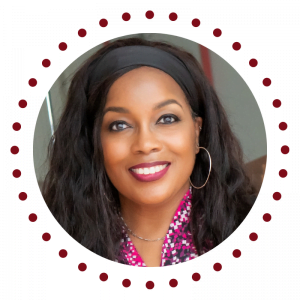
Want Karan to be Your Podcast Guest?
- Blended Workforces & the Gig Economy
- Critical Execution Tactics of High-performing Leaders
- Entrepreneurism & Leading Your Business

Want to be a Podcast Sponsor?
All sponsorships come with a featured spot on show notes pages.
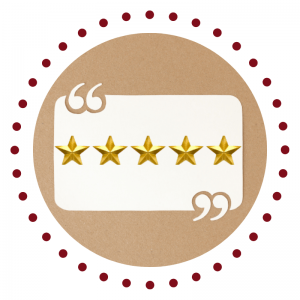
Like the Show? Please Leave a Review
If you like the show, it would mean the world to her if you left a quick review.
Your word is golden, so a HUGE thank you in advance!

#KeepInTouch
via our podcast alerts
Subscribe now to discover why thousands of monthly listeners who are passionate about doing their best work prioritize time each week to listen to the Blended Workforces @Work podcast.
#AboutSDL
#WhereToFindUs
MAILING
4480-H South Cobb Drive
PMB 219
Smyrna, GA 30080
PHYSICAL
2121 NewMarket Parkway
Ste. 108
Marietta, GA 30067
#ContactOptions
Customer Service Email:
service@shockinglydifferent.com
Call or Text:
770-384-1103
#Office Hours
MON-FRI
8:30 AM – 6:30 PM
Weekends By Appointment

